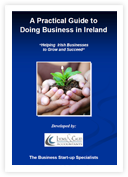 In an era of rising tax rates the tax efficient extraction of cash from a company becomes a significant issue. Depending on the circumstances a company owner may need a regular income from his company or a lump sum. Regardless, careful planning is essential to ensure minimal tax leakage. The most common methods of extracting income from a company are salary, dividends, rental income, loans, and pension contributions.
In an era of rising tax rates the tax efficient extraction of cash from a company becomes a significant issue. Depending on the circumstances a company owner may need a regular income from his company or a lump sum. Regardless, careful planning is essential to ensure minimal tax leakage. The most common methods of extracting income from a company are salary, dividends, rental income, loans, and pension contributions.
Salary
The salary payable to a company owner is normally a tax deductible expense for the company. Appropriate PAYE / PRSI must be deducted from the salary and also paid in respect of any benefits in kind enjoyed by the company owner. The company owner should seek advice in relation to the issue of tax efficient salaries at the commencement of each tax year.
Dividends
The main advantage of paying a dividend is that it may reduce any close company surcharge payable by the company and the level of dividend withholding tax (20%) is often lower than the level of PAYE / PRSI that must be deducted on the payment of salary. However dividends are not tax deductible payments by the company and are ultimately taxed in the hands of the company owner at his / her marginal rate. The lower level of withholding tax gives the recipient a cash flow advantage but not an overall reduction in tax payable.
Rental Income
If a company owner personally owns a property and rents it to his / her company he / she can charge the company rent. It is important that the rent does not exceed fair open market value or negative tax implications can ensue. The landlord can claim various different expenses against the gross rental income e.g. interest on the loan used to acquire or improve the property and repairs and maintenance of the property.
Loans
A company owner should avoid taking a loan from his / her company in most circumstances. It is important to note that a company owner that uses the company to pay for various personal expenses without the imposition of appropriate PAYE / PRSI may be accruing a loan repayable to the company without realising it. An amount equivalent to 20 / 80 of the loan must be paid over to the Revenue Commissioners as income tax. This is repayable on repayment of the loan by the company owner but it creates cash flow problems for the company. The company owner may also have to suffer a benefit in kind in relation to deemed interest payable on the loan from the company unless he is paying the company a significant rate of interest for the time use of the money.
Pension Contributions
An executive pension scheme remains one of the most tax efficient methods of a company owner extracting cash from a company. The company can make a certain level of payments to a company owner’s pension scheme and secure a corporation tax deduction for same. Moreover the contributions are not considered to be a taxable benefit in kind in the hands of the company owner. The recipient of the pension, on the maturity of the pension scheme, may receive a certain element of the overall pension fund tax free and draw down the balance as income.
Especially at retirement, a company owner may be interested in ways to extract tax efficient lump sums. He / she might consider the liquidation of the company combined with a termination payment and a particular focus on the company maximising pension funding to increase the cash available to him / her on accessing the pension.
The Liquidation of the Company
If a company has cash reserves it will normally be more tax efficient to liquidate the company and extract the cash at the capital gains tax rate than to take the money as income (e.g. dividend or salary). The liquidation could be combined with capital gains tax retirement relief to minimise or even eliminate the tax liability on liquidation. Care must be taken not to offend the provisions of Section 817 Taxes Consolidation Act 1997 when considering a liquidation.
Termination Payments
A certain level of tax free ex gratia payment is often available to a company owner leaving an office with a company. Obviously such payments have conditions and limitations attached.
Our Bulletin on Cash Extraction from Companies is available to download here.
If you would like more information or would like to discuss any other areas of interest, please contact us on: Tel: 01 6012600
Email: john@lyonscalzoaccountants.ie




